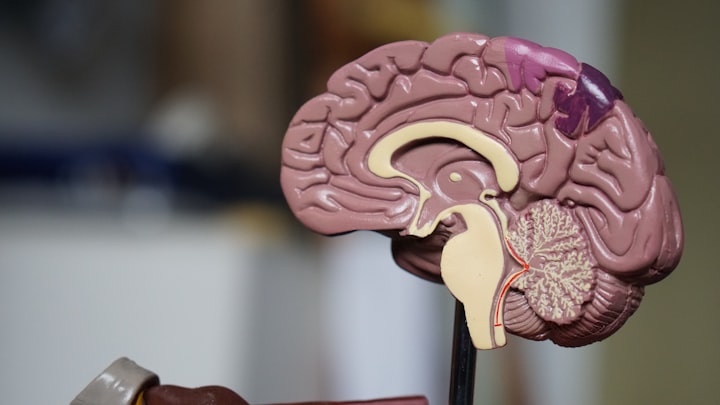"Brain-Boosting Diet: How to Prevent Dementia with Nutrition"
"10 Tips for a Nutrient-Dense, Brain-Healthy Diet to Support Cognitive Function and Reduce the Risk of Dementia"

As we age, it becomes increasingly important to take care of our physical and mental health. One of the most important ways we can do this is by maintaining a healthy diet. In particular, a healthy diet can help to prevent dementia and other age-related cognitive decline. In this article, we'll explore the importance of diet for preventing dementia, and provide some tips on how to eat a brain-healthy diet.
What is Dementia?
Dementia is a term used to describe a range of symptoms associated with cognitive decline, including memory loss, difficulty with language, and changes in mood and behavior. It is most commonly associated with aging, and is caused by a range of factors, including genetics, lifestyle, and environmental factors.
There are many different types of dementia, including Alzheimer's disease, vascular dementia, and Lewy body dementia. Each type of dementia is associated with different symptoms and risk factors, but there is evidence to suggest that many of these risk factors can be mitigated through lifestyle choices, including diet.
The Link Between Diet and Dementia
There is growing evidence to suggest that diet plays a key role in the development and progression of dementia. In particular, there are a number of nutrients and dietary patterns that have been linked to a lower risk of dementia.
For example, studies have shown that a diet rich in fruits, vegetables, whole grains, and lean protein sources can help to reduce the risk of cognitive decline. This type of diet is often referred to as a Mediterranean-style diet, and is characterized by a high intake of healthy fats (such as olive oil and nuts), along with plenty of plant-based foods.
Other dietary patterns that have been linked to a reduced risk of dementia include the DASH diet (which emphasizes fruits, vegetables, low-fat dairy, and whole grains), and the MIND diet (which combines elements of the Mediterranean and DASH diets, along with specific foods that have been shown to be beneficial for brain health, such as leafy green vegetables and berries).
>>Here’s what you need to know about your brain and the pandemic <<
Key Nutrients for Brain Health
In addition to these dietary patterns, there are also specific nutrients that are particularly important for brain health. These include:
Omega-3 Fatty Acids: Omega-3 fatty acids are a type of healthy fat that are found in fatty fish (such as salmon and sardines), as well as in nuts and seeds. Studies have shown that omega-3 fatty acids can help to reduce inflammation and improve cognitive function.
Antioxidants: Antioxidants are compounds that help to protect our cells from damage caused by free radicals. Foods that are high in antioxidants include berries, dark chocolate, and green leafy vegetables.
B Vitamins: B vitamins are important for a range of functions in the body, including brain function. In particular, vitamin B12 is essential for the formation of red blood cells and the maintenance of the nervous system. Vitamin B12 is found in animal products, such as meat, fish, and dairy.
>> Discover the 6 Ways Being “Locked Down” Affected Your Brain Without You Even Realizing It <<
Tips for Eating a Brain-Healthy Diet
If you're looking to eat a diet that is good for your brain, there are a few key things to keep in mind. Here are some tips to get you started:
- Eat plenty of fruits and vegetables: Aim for at least 5 servings of fruits and vegetables per day, and choose a variety of colors to ensure you're getting a range of nutrients.
2.Choose healthy fats: Include healthy fats in your diet, such as those found in nuts, seeds, and fatty fish. Limit your intake of saturated and trans fats, which can be found in processed foods and fried foods.
3.Get enough omega-3s: Aim to eat fatty fish (such as salmon and sardines) at least twice a week. If you don't eat fish, consider taking an omega-3 supplement.
4.Include healthy fats in your diet: Omega-3 fatty acids, which are found in fatty fish like salmon and sardines, as well as nuts and seeds, have been shown to be beneficial for brain health. In addition, monounsaturated and polyunsaturated fats, which are found in foods like avocado, olive oil, and nuts, can help to reduce inflammation in the body and support brain function. However, it's important to be mindful of your overall fat intake, as consuming too much saturated fat (found in foods like red meat and full-fat dairy products) can have negative effects on brain health.
5.Limit your intake of sugar and refined carbohydrates: Foods that are high in sugar and refined carbohydrates (such as white bread and pasta) can cause spikes in blood sugar, which can lead to inflammation and cognitive decline. Instead, choose whole grain sources of carbohydrates and use natural sweeteners like honey or maple syrup in moderation.
6.Stay hydrated: Dehydration can affect cognitive function, so be sure to drink plenty of water throughout the day. Limit your intake of sugary drinks, as these can have negative effects on brain health.
7.Include fermented foods in your diet: Fermented foods like kimchi, sauerkraut, and kefir contain probiotics that help to support a healthy gut microbiome. Research has shown that there is a link between gut health and brain health, so including fermented foods in your diet may be beneficial.
8.Limit your alcohol intake: Heavy alcohol consumption has been linked to cognitive decline and an increased risk of dementia. If you do choose to drink, do so in moderation.
9.Be mindful of your portion sizes: Overeating can lead to weight gain, which is a risk factor for dementia. Be mindful of your portion sizes and aim to eat until you're satisfied, not until you're full.
10.Seek professional advice: If you have specific dietary concerns, such as food allergies or chronic conditions like diabetes, it's important to seek advice from a healthcare professional to ensure that your diet is meeting your individual needs.
The Bottom Line:
Maintaining a healthy diet is one of the most important things you can do to protect your brain health as you age. By focusing on nutrient-dense foods like fruits, vegetables, whole grains, and healthy fats, and limiting your intake of sugar and processed foods, you can reduce your risk of cognitive decline and dementia.
Don't forget to stay hydrated, include fermented foods in your diet, and seek professional advice if you have any specific dietary concerns.
By making these simple changes to your diet, you can support your brain health and maintain your cognitive function well into your golden years.
>> Discover the 6 Ways Being “Locked Down” Affected Your Brain Without You Even Realizing It <<
About the Creator
Luth Espindola
"Unlock a world of knowledge and explore new perspectives with every read. Join us now."






Comments
There are no comments for this story
Be the first to respond and start the conversation.